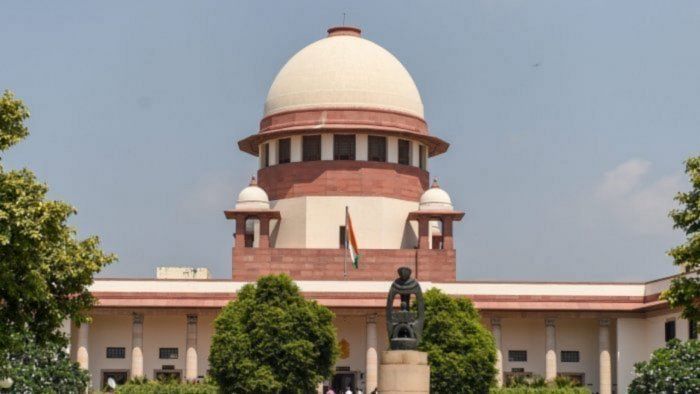
The Supreme Court on Thursday said that India, constitutionally and socially as well, has already reached the intermediate stage after decriminalising homosexuality, in which one can contemplate that people who belong to the same sex would be in stable marriage-like relationships.
A five-judge led by Chief Justice of India D Y Chandrachud also highlighted the problems with other couples.
"What happens when there is a heterosexual couple when there is domestic violence. What kind of impact on children...so much for being heterosexual... what about father coming back home drunk thrashing up the mother and asking money for alcohol? There is nothing absolute. At the cost of being trolled.. answers to what we say in court is in trolls and not in court," the CJI said.
These oral observations by the bench were made while hearing arguments on behalf of the petitioners led by Supriyo alias Supriya Chakraborty for recognising same sex marriage.
The bench, also comprising Justices Sanjay Kishan Kaul, S Ravindra Bhat, Hima Kohli and P S Narasimha, pointed out in the last 69 years, our law has really evolved.
“When you decriminalise homosexuality, you also realise that these are not one-off relationships, these are also stable relationships….by decriminalising homosexuality, we have not just recognised relationships between consenting adults of same gender...we have also recognised implicitly, therefore, the fact that people who are of same sex would be in stable relationships," the CJI said.
The bench also said that now the object of the law in 1954 (Special Marriage Act), was to bring in its fold people who would be governed by a matrimonial relationship apart from their personal laws.
The bench told senior advocate A M Singhvi, representing some of the petitioners, that the law is surely capable of broadly reading, “according to you to take into account stable relationship of same sex as well”.
Singhvi said, “Let me put it very bluntly. When you enacted the law, in the debate in the Parliament, you may not have homosexuals in your mind. You may not have considered them.”.
The bench said “That makes no difference".
During the hearing, the bench also expressed reservations over the provisions in the Special Marriage Act, which required the couple to give 30-day advance notice before marriage to invite public objections.
The bench said these are based on patriarchy. "Though it was to protect, you are making them to invasion by society," the bench said, noting it disproportionately affects the situation where one spouse is from the marginalised community.
The court heard arguments by senior advocates A M Singhvi, K V Vishwanathan, Raju Ramachandran and others on behalf of the petitioners.
